Two Conversations with Bruce Duffie
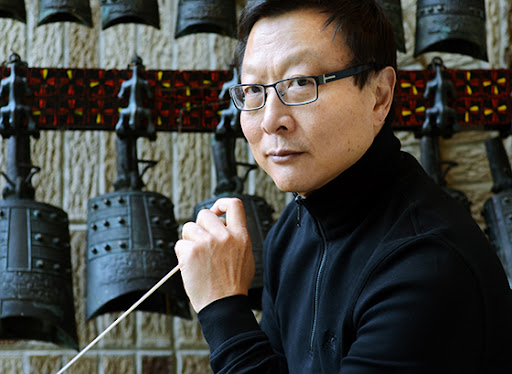

|
Bright Sheng was born in Shanghai, China on December 6, 1955. His mother had been his first piano teacher, having started learning at the age of four. When the Cultural Revolution began, his home's piano was taken away by the Red Guards. Sheng went back to playing a year later, using his school's since he didn't have one at home. Shortly thereafter, he decided to play piano for the rest of his life, although he didn't believe that he could become a musician since his family had no history of music. Sheng was sent to Qinghai Province, China, which used to be a part of Tibet, and stayed there for seven years. He became a performer, playing the piano and percussion to not only perform, but to study and collect folk music. He also began to compose his own music. Because Sheng had to teach himself how to play musical instruments and learn music theory to play, Qinghai folk music became and continues to be a strong inspiration in his compositions today. He used Tibetan folk music from Qinghai as a basis for his opera The Song of Majnun. After the end of the Cultural Revolution, he got admitted into the Shanghai Conservatory of Music where he learned both Chinese classical and traditional music. There, Sheng earned his Bachelor of Arts degree in music composition. Sheng left China in 1982 and joined his family in the United States, where he had to re-learn different elements of music to adjust to the Western style of music. In New York, he attended Queens College to earn his Master of Arts degree in 1984 and Columbia University to earn his Doctor of Musical Arts degree in 1993. Some of his teachers included George Perle and Hugo Weisgall at Queens College, and Chou Wen-chung, Jack Beeson, and Mario Davidovsky at Columbia University, as well as Leonard Bernstein. Sheng served as a composer-in-residence for the Lyric Opera of Chicago from 1989 to 1992, the Seattle Symphony from 1992 to 1995, and as an artistic director for the Wet Ink Festival hosted by the San Francisco Symphony Orchestra in 1993. He also taught at the University of Washington for a year and joined the composition department at the University of Michigan in 1995, as associate professor of music. He was involved in the Silk Road Project, a music project that stretches across different nations and cultures.His orchestral composition H’un (‘Lacerations’), which premiered with the New York Chamber Symphony in 1988 and was a memorial to the Cultural Revolution in China, was awarded the first runner-up for the 1989 Pulitzer Prize. Two years later in 1991, his piece Four Movements for Piano Trio was also awarded first runner-up for the Pulitzer Prize. == Names which are links in this box and below
refer to my interviews elsewhere on my website. BD
|
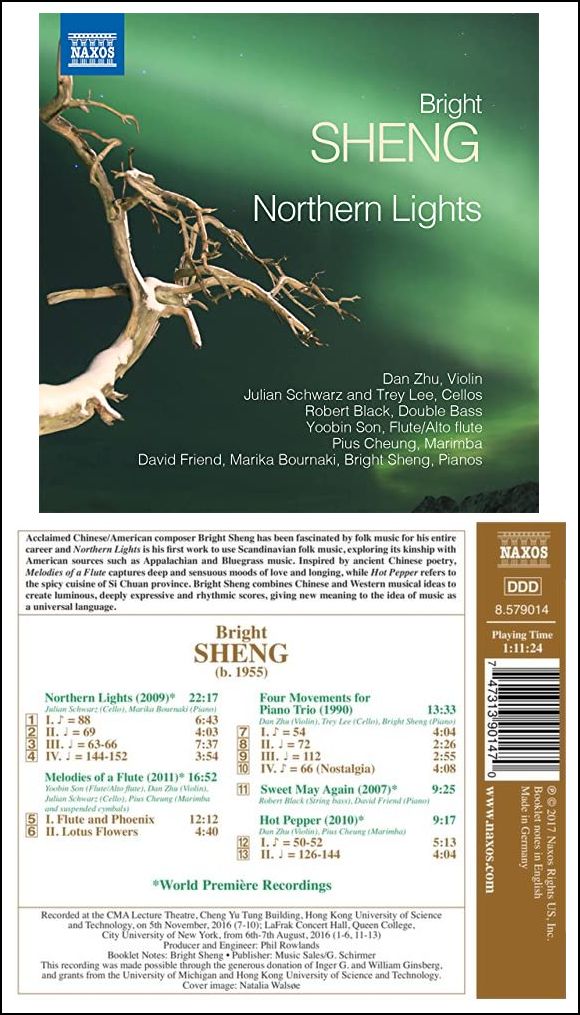
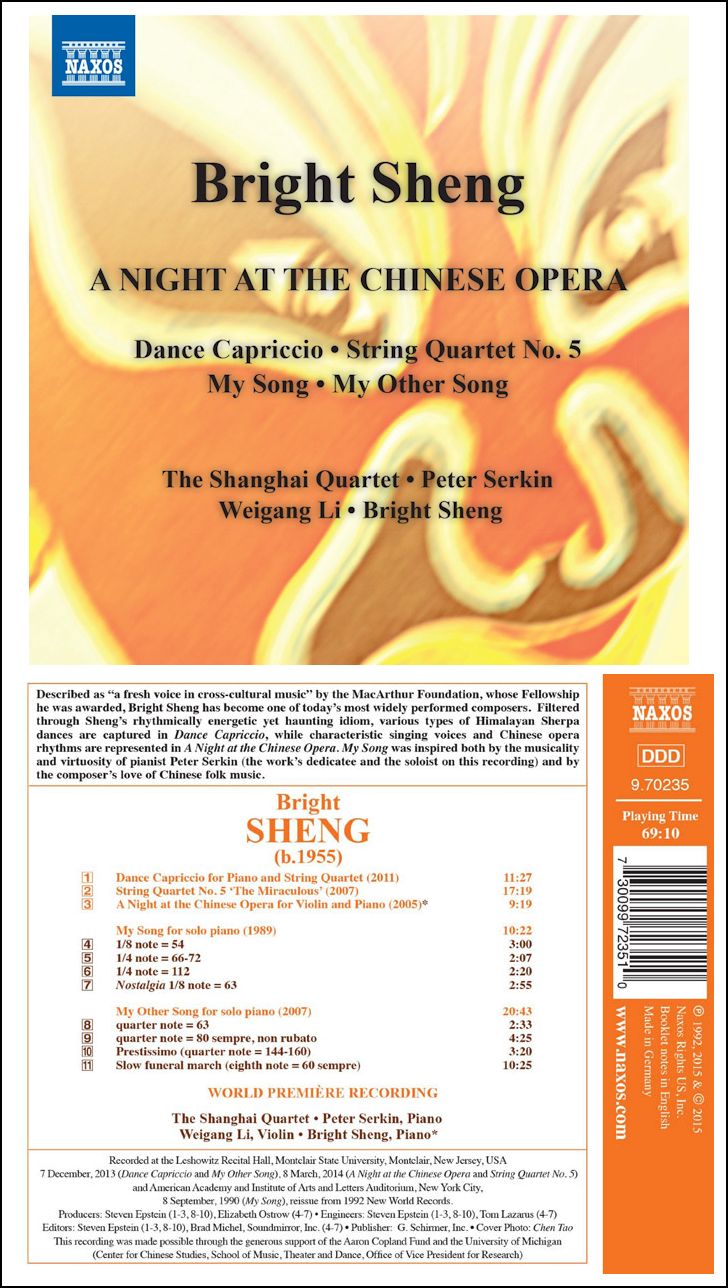 BD: It’s very sad.
BD: It’s very sad.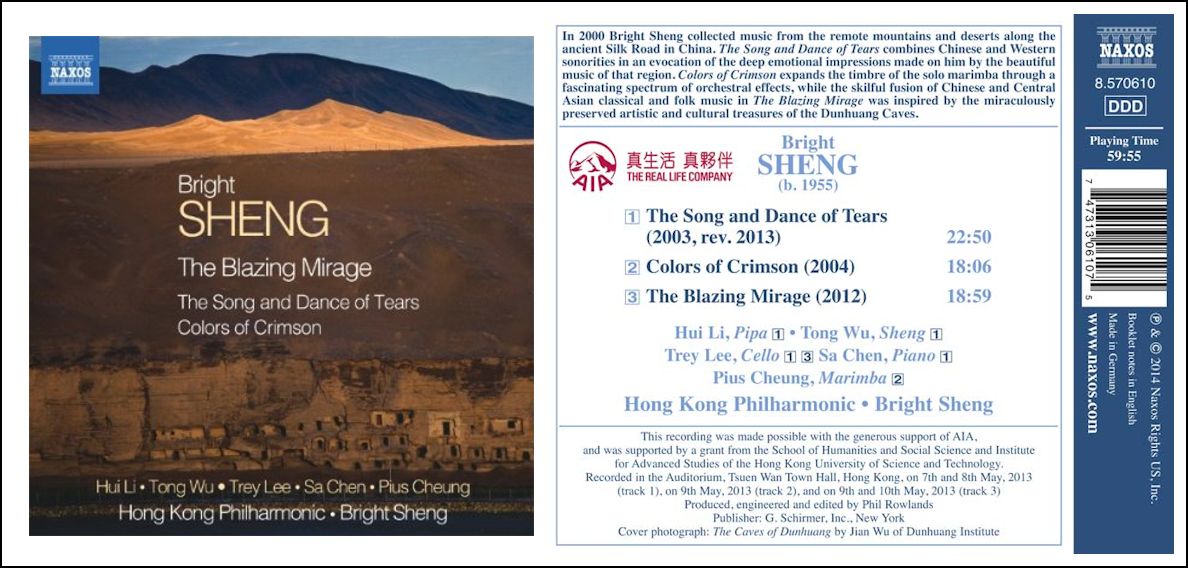
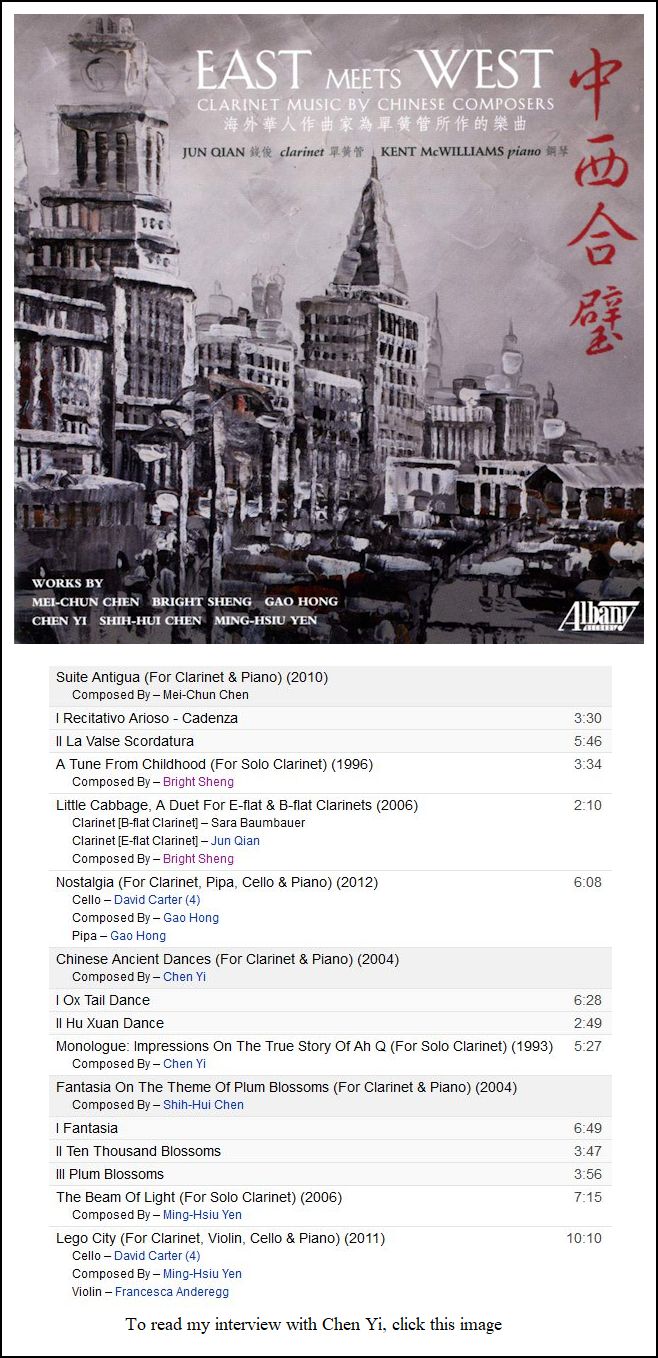 BD: I’m surprised you didn’t take up another instrument,
or continue being a conductor, or even a timpanist.
BD: I’m surprised you didn’t take up another instrument,
or continue being a conductor, or even a timpanist.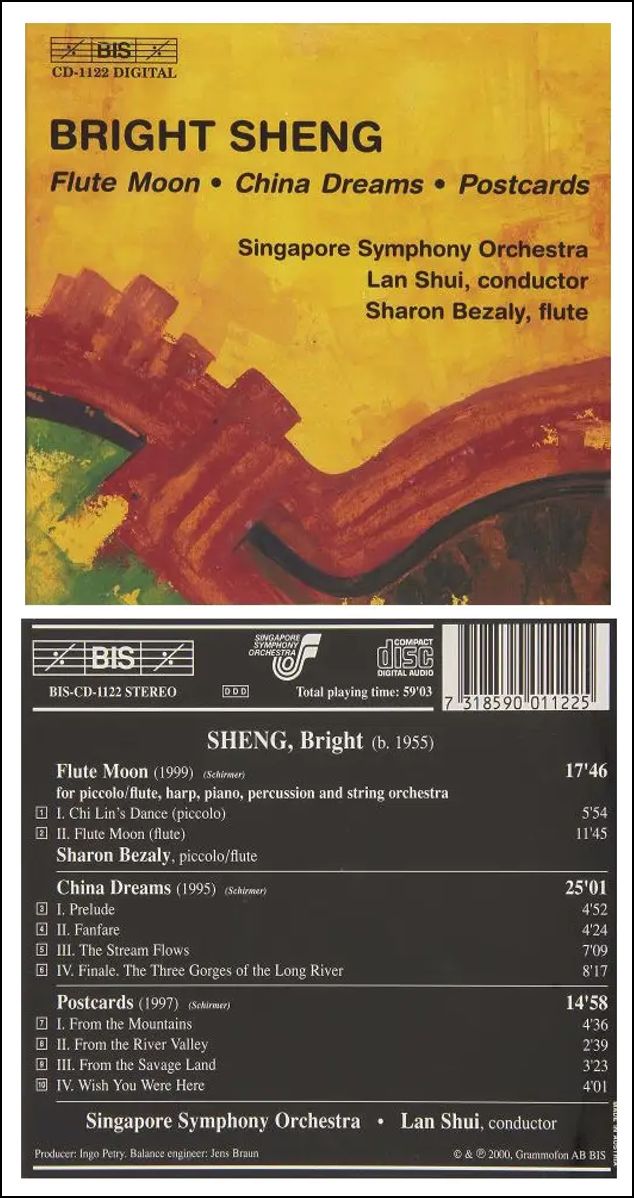 BD: That’s really the only way to
do it, to see it over a period of time, and see the subtle differences
to learn why one performance is different from another, and how to make
it different.
BD: That’s really the only way to
do it, to see it over a period of time, and see the subtle differences
to learn why one performance is different from another, and how to make
it different.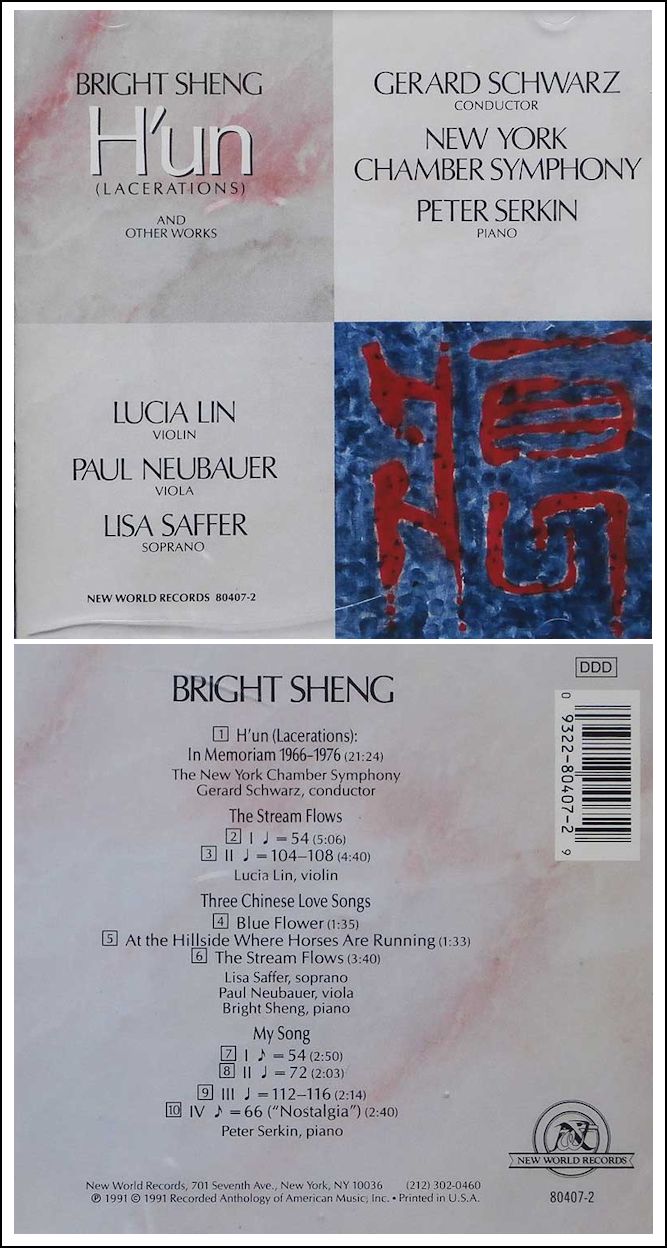
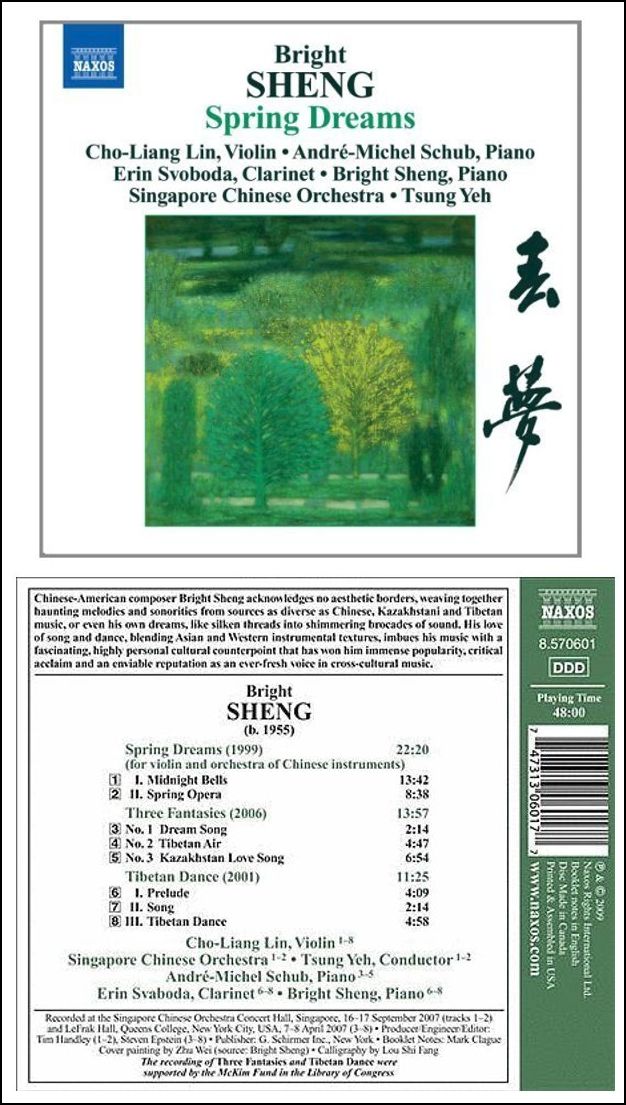
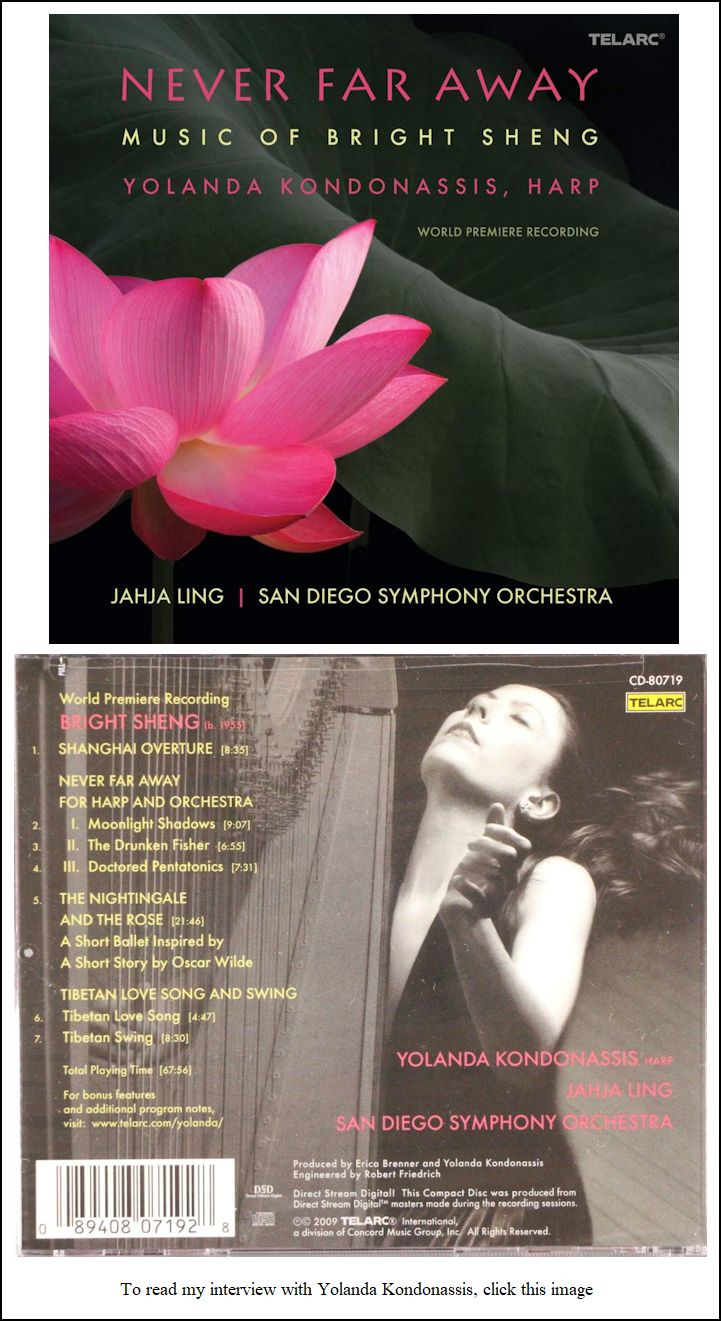 BD: Even Verdi had to fight with
the censors!
BD: Even Verdi had to fight with
the censors!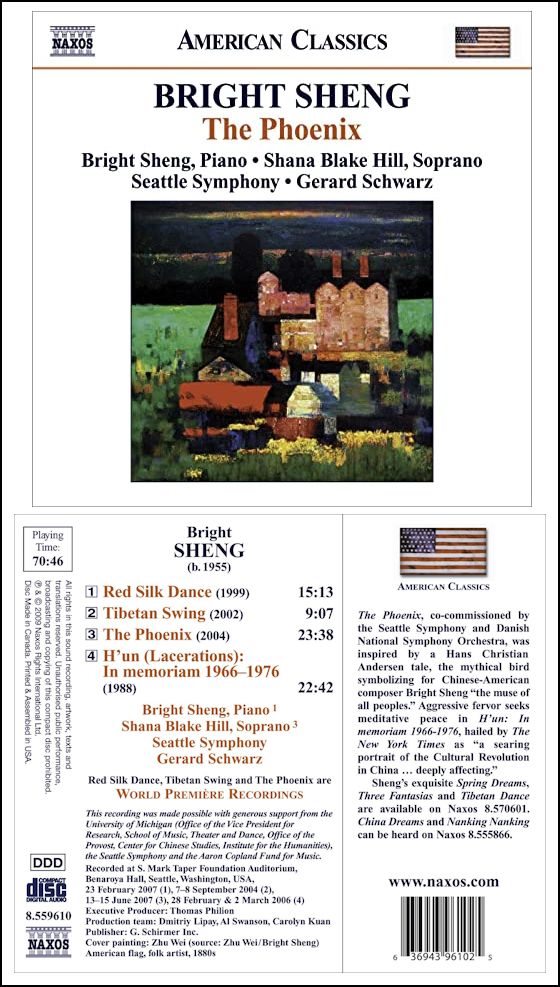
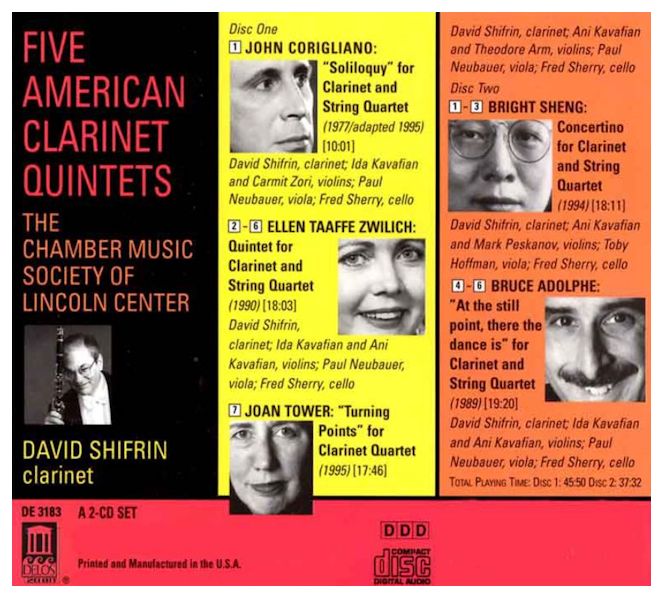
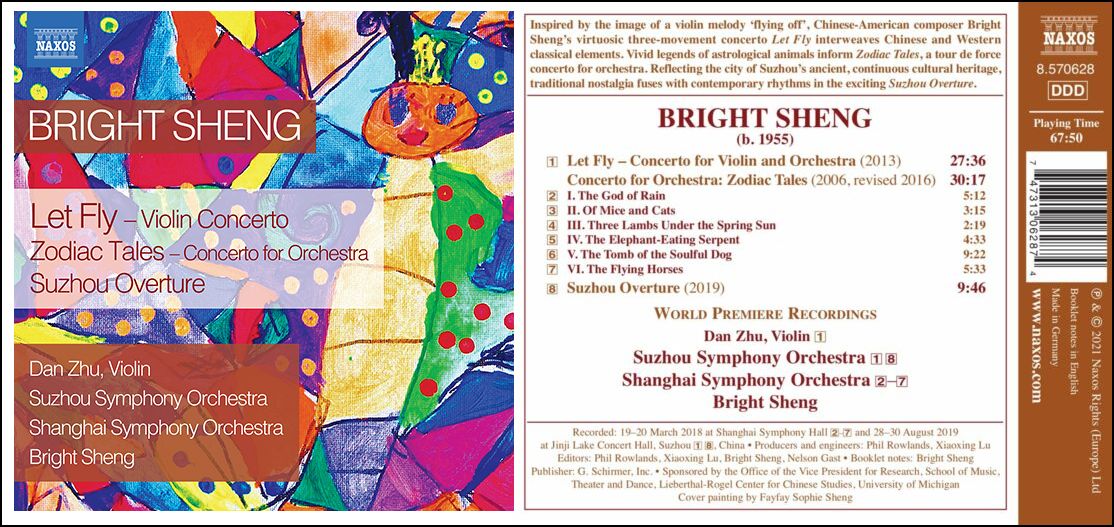
© 1990 & 2003 Bruce Duffie
These conversations were recorded in Chicago on December 1, 1990, and June 7, 2003. Portions of the first one were broadcast on WNIB six weeks later, and again in 1995 and 2000. Copies of the un-edited audio of both have been placed in the Oral History of American Music at Yale University. This transcription was made in 2021, and posted on this website at that time. My thanks to British soprano Una Barry for her help in preparing this website presentation.
To see a full list (with links) of interviews which have been transcribed and posted on this website, click here. To read my thoughts on editing these interviews for print, as well as a few other interesting observations, click here.
Award - winning broadcaster Bruce Duffie was with WNIB, Classical 97 in Chicago from 1975 until its final moment as a classical station in February of 2001. His interviews have also appeared in various magazines and journals since 1980, and he now continues his broadcast series on WNUR-FM, as well as on Contemporary Classical Internet Radio.
You are invited to visit his website for more information about his work, including selected transcripts of other interviews, plus a full list of his guests. He would also like to call your attention to the photos and information about his grandfather, who was a pioneer in the automotive field more than a century ago. You may also send him E-Mail with comments, questions and suggestions.